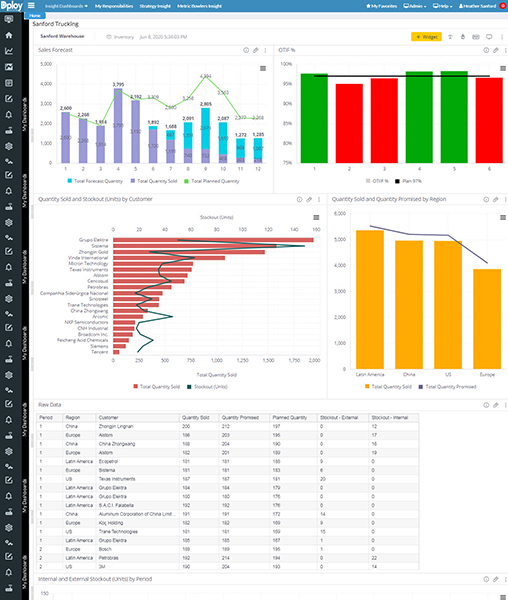The Suez & Yantian Port crises are just the beginning. Here’s why a supply chain control tower is crucial for surviving global uncertainty.
By Ken Koenemann, VP of Technology and Supply Chain at Dploy Solutions, a TBM Consulting Group Company
It seems the hits just keep on coming for global manufacturers. After a year of massive COVID-driven upheaval in the global supply chain, the Ever Given’s six-day blockade of the Suez Canal snarled passage for more than 400 ships and racked up $400 million an hour in losses.
Next, curtailment and congestion at the Chinese Port of Yantian caused weeks of delays, driving dwell time at the world’s third-largest port to more than 25 days, left dozens of shipping vessels sitting idle in the South China Sea, and created worldwide bottlenecks, container shortages and price hikes that will take months to resolve.
All of this, combined with the ongoing chip shortage—which Elon Musk has likened to the great toilet paper crisis of 2020—has manufacturers that rely on global supply chains very worried. Without some way to prepare for and mitigate these crises, manufacturers are essentially at the mercy of circumstances beyond their control.
And that’s dangerous because it gives their better-prepared competition an opportunity to swoop in.

Supply chain control towers have emerged as an essential tool in managing globally integrated manufacturing by helping companies to see what’s happening, make fast decisions and act quickly to reduce the impact of supply chain hurdles, whether it’s a small hiccup or a major crisis. By bringing together the right combination of data, intelligence and technology, the control tower enables visibility, variability and velocity across the business. Here’s how it can help:
The reality is we shouldn’t expect an end to the chaos anytime soon. With COVID outbreaks still popping up around the world, the next hit could come at a major supply factory, shipping port or freight operator. We’re at least two years away from getting back to “normal”—whatever that looks like in a post-COVID world.
Instead of waiting and hoping for things to settle down, manufacturers must implement solutions now to help them mitigate—and even anticipate—the next inevitable supply chain crisis. Supply chain control towers give manufacturers unprecedented agility, with the dynamic response capabilities required to adapt quickly to an ever-changing and unpredictable global market.

Ken Koenemann is the VP of Technology and Supply Chain Practices for TBM Consulting Group which includes Dploy Solutions. After joining the company in 2006, Koenemann has been responsible for driving TBM’s technology strategy, creating value-added technologies and services for client business operations. Koenemann is widely recognized for his expertise in translating lean principles to supply chain and customer-facing processes in manufacturing and service organizations. He has a Bachelor of Arts degree in management from the University of Missouri-St. Louis.
Scott Ellyson, CEO of East West Manufacturing, brings decades of global manufacturing and supply chain leadership to the conversation. In this episode, he shares practical insights on scaling operations, navigating complexity, and building resilient manufacturing networks in an increasingly connected world.